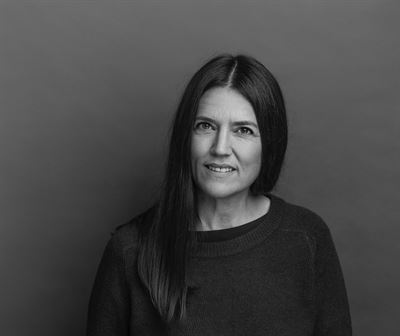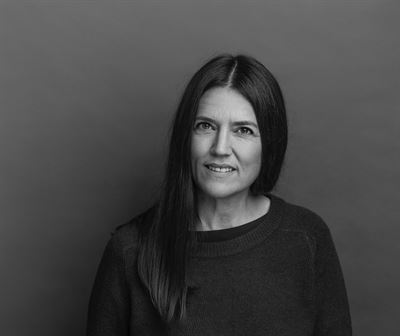Marknadsnyheter
Enhertu approved in China as the first HER2-directed therapy for patients with HER2-low metastatic breast cancer
Approval based on DESTINY-Breast04 results which showed AstraZeneca and Daiichi Sankyo’s Enhertu reduced the risk of disease progression or death by 50% and increased median overall survival by more than 6 months vs. chemotherapy
AstraZeneca and Daiichi Sankyo’s Enhertu (trastuzumab deruxtecan) has been approved in China as a monotherapy for the treatment of adult patients with unresectable or metastatic HER2-low (IHC 1+ or IHC 2+/ISH-) breast cancer who have received a prior systemic therapy in the metastatic setting or developed disease recurrence during or within six months of completing adjuvant chemotherapy.
Enhertu is a specifically engineered HER2-directed antibody drug conjugate (ADC) being jointly developed and commercialised by AstraZeneca and Daiichi Sankyo.
The approval by China’s National Medical Products Administration (NMPA) is based on the results of the DESTINY-Breast04 Phase III trial, first presented at the American Society of Clinical Oncology 2022 Annual Meeting and published in The New England Journal of Medicine.1 It follows the approval granted by China’s NMPA for Enhertu in patients with previously treated unresectable or metastatic HER2-positive breast cancer in February 2023.
In China, breast cancer is the most common cancer in women, with more than 415,000 patients diagnosed in 2020.2 There were nearly 120,000 breast cancer deaths in China in 2020, representing around 18% of global breast cancer deaths.2 Approximately half of all breast cancers are considered HER2-low.3-5
Binghe Xu, MD, Director of the National Clinical Research Center for New Anticancer Drugs, Tenured Professor and Former Director, Department of Medical Oncology, Cancer Hospital Chinese Academy of Medical Sciences and Peking Union Medical College, said: “Historically, breast cancer tumours with low levels of HER2 expression have been classified as HER2-negative and have not been eligible for treatment with HER2-directed therapies. With this approval in China, based on the results of the DESTINY-Breast04 trial, clinicians will now be able to identify and potentially treat a distinct patient population based on HER2-low status.”
Dave Fredrickson, Executive Vice President, Oncology Business Unit, AstraZeneca, said: “Patients with HR-positive or HR-negative, HER2-low metastatic breast cancer previously had few effective treatment options beyond chemotherapy. The results from the DESTINY-Breast04 trial show Enhertu provides a significant improvement in outcomes compared to chemotherapy for patients whose tumours are determined to be HER2-low via routine testing. This approval is an important advance in the way breast cancer is classified and treated in China and supports our vision to bring Enhertu to more patients worldwide.”
Kiminori Nagao, Head of the Asia, South & Central America (ASCA) Business Unit, Daiichi Sankyo, said: “This approval of Enhertu for patients with HER2-low metastatic breast cancer, which comes shortly after the approval of Enhertu in patients with HER2-positive disease, marks the first time patients with HER2-low tumours will have the opportunity to be treated with a HER2-directed therapy. Enhertu now has the potential to become a new standard of care treatment option in China for a broad range of patients with HER2-expressing metastatic breast cancer.”
In DESTINY-Breast04, Enhertu reduced the risk of disease progression or death by 50% versus physician’s choice of chemotherapy (median progression-free survival [PFS] 9.9 vs. 5.1 months; hazard ratio [HR] of 0.50; 95% confidence interval [CI] 0.40-0.63; p<0.0001) in all randomised patients with HER2-low metastatic breast cancer (either hormone receptor (HR)-positive or HR-negative disease). A 36% reduction in the risk of death (HR of 0.64; 95% CI 0.49-0.84; p=0.001) also was seen with Enhertu compared to chemotherapy with a median overall survival (OS) of 23.4 months in patients treated with Enhertu versus 16.8 months in those treated with chemotherapy.
The safety profile observed in patients treated with Enhertu in the DESTINY-Breast04 trial was consistent with that seen in other trials of Enhertu in breast cancer with no new safety signals identified.
Financial considerations
Sales of Enhertu in China are recognised by AstraZeneca and will be recorded as product sales on the profit and loss statement. Further details on the financial arrangements were set out in the March 2019 announcement of the collaboration.
Notes
Breast cancer and HER2 expression
Breast cancer is the most common cancer and is one of the leading causes of cancer-related deaths worldwide.6 More than two million patients were diagnosed with breast cancer in 2020, with nearly 685,000 deaths globally.6 In China, breast cancer is the most common cancer in women, with more than 415,000 patients diagnosed in 2020.2
HER2 is a tyrosine kinase receptor growth-promoting protein expressed on the surface of many types of tumours, and is one of many biomarkers expressed in breast cancer tumours.7
Historically, HER2-positive cancers have been defined as HER2 expression measured as immunohistochemistry [IHC] 3+ or IHC 2+/in-situ hybridisation [ISH]+, and HER2-negative cancers are defined as HER2 expression measured as IHC 0, IHC 1+ or IHC 2+/ISH-.4 However, approximately half of all breast cancers are HER2-low, defined as a HER2 score of IHC1+ or IHC 2+/ISH-.3-5 HER2-low occurs in both HR-positive and HR-negative disease.8
Previously, patients with HR-positive metastatic breast cancer and HER2-low disease have had limited effective treatment options following progression on endocrine (hormone) therapy.9 Additionally, few targeted options are available for those with HR-negative disease.10 With this approval of Enhertu, patients with HER2-low tumours may be eligible for HER2-directed therapy.
DESTINY-Breast04
DESTINY-Breast04 is a global, randomised, open-label, Phase III trial evaluating the efficacy and safety of Enhertu (5.4mg/kg) versus physician’s choice of chemotherapy (capecitabine, eribulin, gemcitabine, paclitaxel or nab-paclitaxel) in patients with HR-positive or HR-negative, HER2-low unresectable and/or metastatic breast cancer previously treated with one or two prior lines of chemotherapy. Patients were randomised 2:1 to receive either Enhertu or chemotherapy.
The primary endpoint of DESTINY-Breast04 is PFS in patients with HR-positive disease based on BICR. Key secondary endpoints include PFS based on BICR in all randomised patients (HR-positive and HR-negative disease), OS in patients with HR-positive disease and OS in all randomised patients (HR-positive and HR-negative disease). Other secondary endpoints include PFS based on investigator assessment, objective response rate based on BICR and on investigator assessment, duration of response based on BICR and safety.
DESTINY-Breast04 enrolled 557 patients at multiple sites in Asia, Europe and North America. For more information about the trial, visit ClinicalTrials.gov.
Enhertu
Enhertu is a HER2-directed ADC. Designed using Daiichi Sankyo’s proprietary DXd ADC technology, Enhertu is the lead ADC in the oncology portfolio of Daiichi Sankyo and the most advanced programme in AstraZeneca’s ADC scientific platform. Enhertu consists of a HER2 monoclonal antibody attached to a topoisomerase I inhibitor payload, an exatecan derivative, via a stable tetrapeptide-based cleavable linker.
Enhertu (5.4mg/kg) is approved in more than 50 countries for the treatment of adult patients with unresectable or metastatic HER2-positive breast cancer who have received a (or one or more) prior anti-HER2-based regimen, either in the metastatic setting or in the neoadjuvant or adjuvant setting, and have developed disease recurrence during or within six months of completing therapy based on the results from the DESTINY-Breast03 trial.
Enhertu (5.4mg/kg) is approved in more than 40 countries for the treatment of adult patients with unresectable or metastatic HER2-low (IHC 1+ or IHC 2+/ISH-) breast cancer who have received a prior systemic therapy in the metastatic setting or developed disease recurrence during or within six months of completing adjuvant chemotherapy based on the results from the DESTINY-Breast04 trial.
Enhertu (5.4 mg/kg) is approved in Israel and under accelerated approval in the US for the treatment of adult patients with unresectable or metastatic non-small cell lung cancer (NSCLC) whose tumours have activating HER2 (ERBB2) mutations, as detected by a locally or regionally approved test, and who have received a prior systemic therapy based on the results from the DESTINY-Lung02 trial. Continued approval for this indication in the US may be contingent upon verification and description of clinical benefit in a confirmatory trial.
Enhertu (6.4mg/kg) is approved in more than 30 countries for the treatment of adult patients with locally advanced or metastatic HER2-positive gastric or gastroesophageal junction adenocarcinoma who have received a prior trastuzumab-based regimen based on the results from the DESTINY-Gastric01 trial and/or DESTINY-Gastric02 trial.
Enhertu development programme
A comprehensive global development programme is underway evaluating the efficacy and safety of Enhertu monotherapy across multiple HER2-targetable cancers. Trials in combination with other anticancer treatments, such as immunotherapy, are also underway.
Daiichi Sankyo collaboration
Daiichi Sankyo Company, Limited (TSE: 4568) [referred to as Daiichi Sankyo] and AstraZeneca entered into a global collaboration to jointly develop and commercialise Enhertu (a HER2-directed ADC) in March 2019, and datopotamab deruxtecan (DS-1062; a TROP2-directed ADC) in July 2020, except in Japan where Daiichi Sankyo maintains exclusive rights. Daiichi Sankyo is responsible for the manufacturing and supply of Enhertu and datopotamab deruxtecan.
AstraZeneca in breast cancer
Driven by a growing understanding of breast cancer biology, AstraZeneca is starting to challenge, and redefine, the current clinical paradigm for how breast cancer is classified and treated to deliver even more effective treatments to patients in need – with the bold ambition to one day eliminate breast cancer as a cause of death.
AstraZeneca has a comprehensive portfolio of approved and promising compounds in development that leverage different mechanisms of action to address the biologically diverse breast cancer tumour environment.
With Enhertu (trastuzumab deruxtecan), a HER2-directed ADC, AstraZeneca and Daiichi Sankyo are aiming to improve outcomes in previously treated HER2-positive and HER2-low metastatic breast cancer and are exploring its potential in earlier lines of treatment and in new breast cancer settings.
In HR-positive breast cancer, AstraZeneca continues to improve outcomes with foundational medicines Faslodex (fulvestrant) and Zoladex (goserelin) and aims to reshape the HR-positive space with next-generation SERD and potential new medicine camizestrant as well as a potential first-in-class AKT kinase inhibitor, capivasertib. AstraZeneca is also collaborating with Daiichi Sankyo to explore the potential of TROP2-directed ADC, datopotamab deruxtecan, in this setting.
PARP inhibitor Lynparza (olaparib) is a targeted treatment option that has been studied in early and metastatic breast cancer patients with an inherited BRCA mutation. AstraZeneca with MSD (Merck & Co., Inc. in the US and Canada) continues to research Lynparza in these settings and to explore its potential in earlier disease.
To bring much-needed treatment options to patients with triple-negative breast cancer, an aggressive form of breast cancer, AstraZeneca is evaluating the potential of datopotamab deruxtecan alone and in combination with immunotherapy Imfinzi (durvalumab), capivasertib in combination with chemotherapy, and Imfinzi in combination with other oncology medicines, including Lynparza and Enhertu.
AstraZeneca in oncology
AstraZeneca is leading a revolution in oncology with the ambition to provide cures for cancer in every form, following the science to understand cancer and all its complexities to discover, develop and deliver life-changing medicines to patients.
The Company’s focus is on some of the most challenging cancers. It is through persistent innovation that AstraZeneca has built one of the most diverse portfolios and pipelines in the industry, with the potential to catalyse changes in the practice of medicine and transform the patient experience.
AstraZeneca has the vision to redefine cancer care and, one day, eliminate cancer as a cause of death.
AstraZeneca
AstraZeneca (LSE/STO/Nasdaq: AZN) is a global, science-led biopharmaceutical company that focuses on the discovery, development, and commercialisation of prescription medicines in Oncology, Rare Diseases, and BioPharmaceuticals, including Cardiovascular, Renal & Metabolism, and Respiratory & Immunology. Based in Cambridge, UK, AstraZeneca operates in over 100 countries and its innovative medicines are used by millions of patients worldwide. Please visit astrazeneca.com and follow the Company on Twitter @AstraZeneca.
Contacts
For details on how to contact the Investor Relations Team, please click here. For Media contacts, click here.
References
- Modi S, et al. Trastuzumab deruxtecan in previously treated HER2-low advanced breast cancer. NEJM. 2022; 387: 9-20.
- Wei Cao, et al. Changing profiles of cancer burden worldwide and in China: a secondary analysis of the global cancer statistics 2020. Chin Med J (Engl). 2021 Apr 5; 134(7): 783–791.
- Schalper K, et al. A retrospective population-based comparison of HER2 immunohistochemistry and fluorescence in situ hybridization in breast carcinomas. Arch Pathol Lab Med. 2014; 138: 213-19.
- Schettini F, et al. Clinical, pathological, and PAM50 gene expression features of HER2-low breast cancer. npj Breast Cancer. 2021; 7:1; https://doi.org/10.1038/s41523-020-00208-2.
- Denkert C, et al. Clinical and molecular characteristics of HER2-low-positive breast cancer: pooled analysis of individual patient data from four prospective, neoadjuvant clinical trials. 2021. Lancet Oncol; 22: 1151-61.
- Sung H, et al. Global Cancer Statistics 2020: GLOBOCAN Estimates of Incidence and Mortality Worldwide for 36 Cancers in 185 Countries. CA Cancer J Clin. 2021; 10.3322/caac.21660.
- Iqbal N, et al. Human Epidermal Growth Factor Receptor 2 (HER2) in Cancers: Overexpression and Therapeutic Implications. Mol Biol Int. 2014; 852748.
- Miglietta F, et al. Evolution of HER2-low expression from primary to recurrent breast cancer. NPJ Breast Cancer. 2021; 7: 137; 10.1038/s41523-021-00343-4.
- Matutino A, et al. Hormone receptor-positive, HER2-negative metastatic breast cancer: redrawing the lines. Current Oncology. 2018; 25(S1):S131-S141.
- American Cancer Society. Breast Cancer Hormone Receptor Status. Available at: https://www.cancer.org/cancer/breast-cancer/understanding-a-breast-cancer-diagnosis/breast-cancer-hormone-receptor-status.html. Accessed July 2023.
Marknadsnyheter
Regeringen föreslår lättnader i byggkraven för studentbostäder
Regeringen har beslutat om en lagrådsremiss med förslag till lättnader i byggkraven för studentbostäder. Syftet är att öka möjligheterna till flexibilitet vid byggandet.
– På många studieorter är det svårt för studenter att hitta boende. Därför behöver byggregelverket förenklas. Syftet är att möjliggöra för fler studentbostäder genom sänkta byggkostnader och ökad flexibilitet, säger infrastruktur- och bostadsminister Andreas Carlson.
Förslaget innebär att det blir möjligt att göra undantag från kraven på tillgänglighet och användbarhet i en byggnad som innehåller studentbostäder. Undantagen ska kunna tillämpas vid både nyproduktion och vid ändring av en byggnad.
Det ska vara möjligt att göra undantag för högst 80 procent av studentbostäderna i ett byggprojekt. Minst 20 procent av studentbostäderna ska fortfarande uppfylla gällande krav på tillgänglighet och användbarhet för personer med nedsatt rörelse- eller orienteringsförmåga.
Lagändringen ger större flexibilitet vid byggande av studentbostäder och skapar fler tänkbara sätt att utforma planlösningar. Till exempel kan bostadsytan minskas och fler bostäder rymmas inom en given yta.
De föreslagna undantagen ska inte hindra personer med funktionsnedsättning att vara delaktiga i sociala sammanhang. En studentbostad som omfattas av undantagen ska kunna besökas av en person med nedsatt rörelse- eller orienteringsförmåga.
Regeringen breddar också definitionen av studentbostäder till att inkludera all vuxenutbildning för att göra det möjligt för fler kommuner att erbjuda studentbostäder.
Förslagen föreslås träda i kraft den 1 juli 2025.
Lagrådsremissen: Lättnader i byggkraven för studentbostäder – Regeringen.se
Presskontakt
Ebba Gustavsson
Pressekreterare hos infrastruktur- och bostadsminister Andreas Carlson
Telefon (växel) 08-405 10 00
Mobil 076-12 70 488
ebba.gustavsson@regeringskansliet.se
Marknadsnyheter
“Vi behöver tillsammans enas om vettiga avtal, som sätter standard för branschen”


Sveriges Radios Kulturnytt gör just nu en mycket välkommen granskning av villkoren i musikbranschen. Igår lyftes artisten Siw Malmkvists situation med ett avtal som inte förnyats på över 60 år. Hennes situation är tyvärr långt ifrån unik. Musikerförbundet har länge uppmärksammat att majorbolagen fortsätter att betala extremt låga royaltynivåer till artister vars kontrakt skrevs på 1960-talet – en tid då digital streaming inte existerade.
– Jag kan intyga att artisterna som talar ut i P1 är långt ifrån ensamma om sin situation och vi uppmanar deras artistkollegor att gå ut med sitt tydliga stöd till de som vågar bryta tystnaden om oskäliga ersättningar, säger Musikerförbundets ordförande Karin Inde.
Musiker och artister skapar det värde som skivbolagen tjänar pengar på, men ändå ser vi gång på gång hur bolagen behåller stora delar av intäkterna. Att en av Sveriges mest folkkära artister, med en karriär som sträcker sig över decennier, fortfarande har en oskälig royalty är ett tydligt bevis på branschens obalans.
– Tystnadskulturen kring prissättning är enbart bra för bolagen. Både artister och musiker skulle verkligen tjäna på att dela med sig till varandra om hur betalningar och dealar verkligen ser ut. Förstås i trygga, egna rum. Det är bara bolagen som tjänar på att vi inte pratar med varandra om pengar, säger Karin Inde.
Stort tack till de modiga artister som ser till att lyfta problematiken! För att vi ska få till en i grunden mer rättvis musikbransch behöver de stora parterna i sammanhanget – skivbolagen, musikerna och artisterna – göra som de flesta andra svenska branscher lyckas med:
– Vi behöver tillsammans enas om vettiga och balanserade avtal, som sätter standard för branschen. Musikerförbundet är redo att göra vår del i arbetet för bättre villkor i musikbranschen, frågan är om skivbolagen är redo, säger Karin Inde.
Karin Inde
Förbundsordförande
karin.inde@musikerforbundet.se
+46 (0)704447228
Musikerförbundet är fackförbundet för professionella musiker och artister. Vi arbetar för förbättrade upphovsrättsliga och arbetsrättsliga villkor och för att våra medlemmar ska få en rättvis del av de värden de skapar i samhället.
Marknadsnyheter
Bönor från egen kaffeskog, sump till jord – Viking Lines nya kaffe gör gott på många olika sätt


Viking Lines resenärer dricker varje år 8,5 miljoner koppar kaffe. Nu satsar rederiet på ett helt nytt kaffe som ger minskade klimatutsläpp och bättre levnadsvillkor för odlarna. Kaffet från Slow Forest odlas på rederiets egen odling i Laos utan kemiska gödningsmedel, handplockas och rostas därefter i Danmark.
Allt kaffe som serveras på Viking Lines fartyg är nu hållbart producerat Slow Forest-kaffe, odlat på rederiets 75 hektar stora odling på högplatåerna i Laos och rostat i Danmark. Kaffeplantorna odlas bland träd på återbeskogad mark, i stället för på traditionellt skövlade plantager. Viking Lines odling ligger i en kolsänka där målsättningen är att plantera 30 000 träd, vilket innebär nästan 400 träd per hektar. Kaffeskogen förbättrar också den lokala biologiska mångfalden i området.
Odlingen, bearbetningen och rostningen av kaffet hanteras av Slow Forest Coffee. För företaget är det viktigt att produktionskedjan är rättvis och transparent. Utöver miljöfördelarna erbjuder Slow Forest bättre lönevillkor och sjukersättning för byns odlare.
”Den traditionella kaffetillverkningens koldioxidavtryck är stort och merparten av intäkterna går till Europa i stället för produktionsländerna. Vi ville göra annorlunda. Våra kunder vill göra hållbara val, och nu kan de njuta av sitt kaffe med bättre samvete än någonsin tidigare,” berättar Viking Lines restaurangchef Janne Lindholm.
Bönorna till Slow Forest-kaffet får sakta mogna i skuggan av träden, utan kemiska gödningsmedel. De plockas också för hand, vilket avsevärt förbättrar kaffets kvalitet och smak. Viking Lines nya kaffe består till 100 procent av Arabica-bönor, med en balanserad syrlighet samt smak av nötter och choklad. Rostningsprofilen har skapats av den världsberömda danska rostningsmästaren Michael de Renouard.
”Vi valde en mörkrost till fartygets kaffe, vilket passar både finländarnas och svenskarnas nuvarande smakpreferenser gällande rostning. Finländarnas smak gällande kaffe har under de senaste åren utvecklats mot en mörkare rostning. Innan vi gjorde vårt slutgiltiga val testades det nya kaffet i Viking Cinderellas bufférestaurang och personalmässen – och båda testgrupperna gav toppbetyg. Då 8,5 miljoner koppar kaffe bryggs varje år kan inget lämnas åt slumpen!” säger Janne Lindholm.
Viking Lines hållbarhetsmål stannar inte vid produktionskedjan. Kaffesump från fartygen återvinns nämligen som råmaterial för trädgårdsjord. Detta minskar avsevärt användningen av jungfrulig torv vid tillverkningen av mylla.
”Vi har som mål att allt som tagits ombord på fartygen som är möjligt att återvinna ska återanvändas eller återvinnas. Det gäller inte bara kaffet utan även matavfall och till exempel textilier som tas ur bruk. Ett bra exempel på vårt livscykeltänkande är att frityrolja från fartygets restauranger blir till biobränsle för den finska sjöfartsindustrin,” säger Viking Lines hållbarhetschef Dani Lindberg.
Slow Forest Coffee – 5 fakta:
- Slow Forest Coffee är ett kaffeföretag som verkar i Laos, Vietnam och Indonesien i samarbete med över 500 lokala kaffeodlare.
- Företaget grundades år 2019 av Pinja Puustjärvi, driven av en vilja att skydda skogarna i Laos och stötta lokala odlare. Puustjärvi bodde som barn i Laos på grund av sin fars arbete.
- Kaffet odlas i restaurerade kaffeskogar, som binder stora mängder kol och ökar den biologiska mångfalden.
- Det är viktigt för företaget att produktionskedjan är ansvarsfull och transparent, samt att verksamheten gynnar både miljön och de lokala samhällena.
- Slow Forest Coffee betalar odlarna bättre ersättning än genomsnittet i Laos och erbjuder förmåner som underlättar deras liv: förskottsbetalningar, utbildning och möjligheten att låna pengar från en krisfond.
Mera infomation om Slow Forest Coffee här
Tilläggsinformation:
Janne Lindholm, restaurangchef
janne.lindholm@vikingline.com, tel. +358 400 744 806
Dani Lindberg, hållbarhetschef
dani.lindberg@vikingline.com, tel. +358 18 27 000
Johanna Boijer-Svahnström, informationsdirektör
johanna.boijer@vikingline.com, tel. +358 18 270 00
Christa Grönlund, informationschef
christa.gronlund@vikingline.com, tel. +358 9 123 51
-
Analys från DailyFX10 år ago
EUR/USD Flirts with Monthly Close Under 30 Year Trendline
-
Marknadsnyheter5 år ago
BrainCool AB (publ): erhåller bidrag (grant) om 0,9 MSEK från Vinnova för bolagets projekt inom behandling av covid-19 patienter med hög feber
-

 Marknadsnyheter2 år ago
Marknadsnyheter2 år agoUpptäck de bästa verktygen för att analysera Bitcoin!
-
Analys från DailyFX12 år ago
Japanese Yen Breakout or Fakeout? ZAR/JPY May Provide the Answer
-

 Marknadsnyheter2 år ago
Marknadsnyheter2 år agoDärför föredrar svenska spelare att spela via mobiltelefonen
-
Analys från DailyFX12 år ago
Price & Time: Key Levels to Watch in the Aftermath of NFP
-
Analys från DailyFX8 år ago
Gold Prices Falter at Resistance: Is the Bullish Run Finished?
-

 Nyheter7 år ago
Nyheter7 år agoTeknisk analys med Martin Hallström och Nils Brobacke

